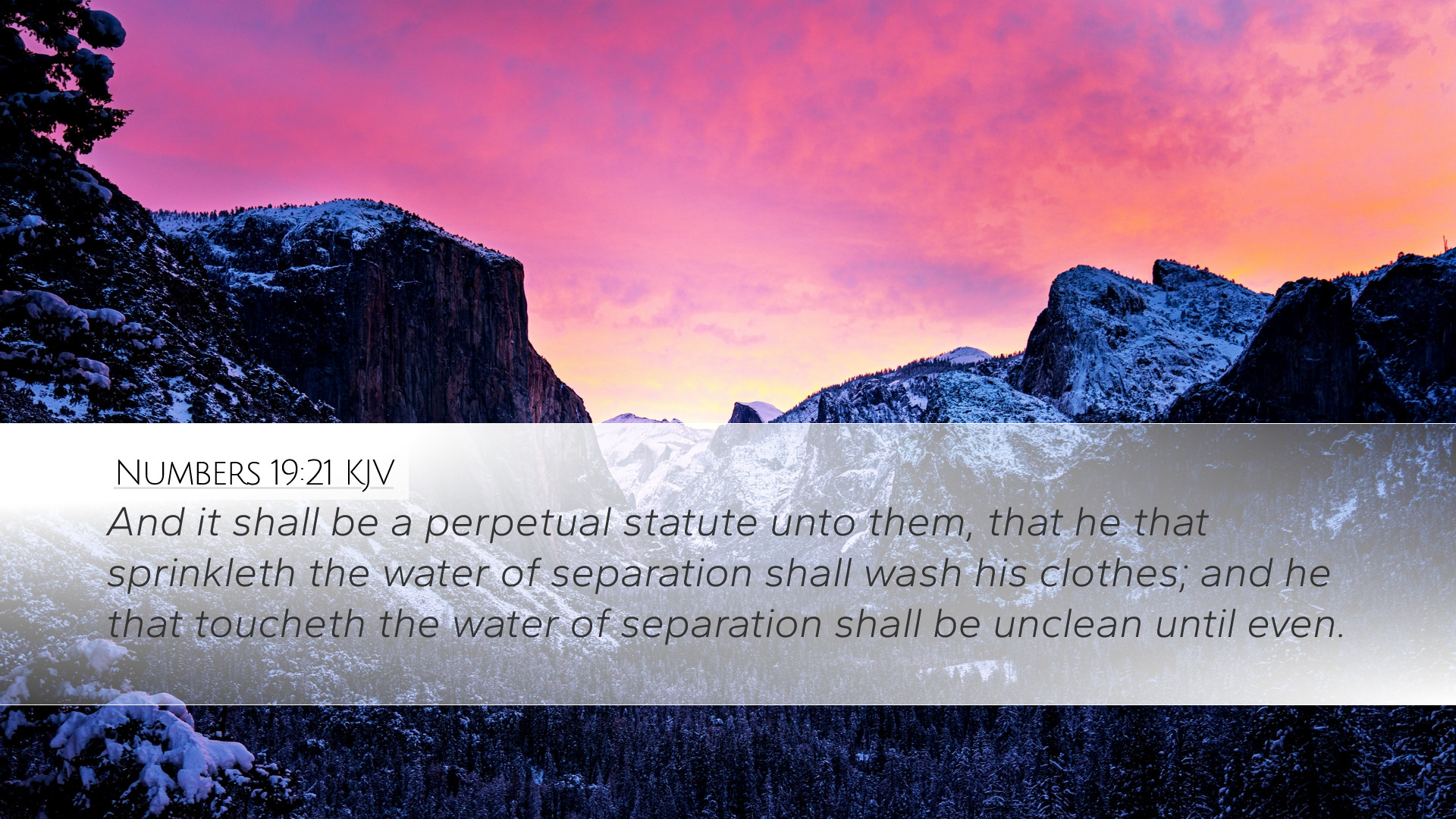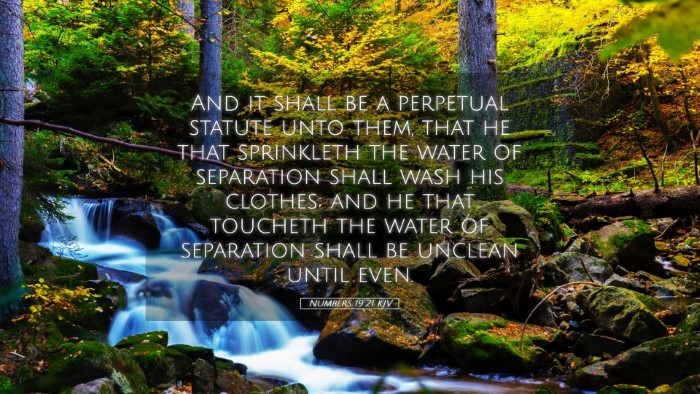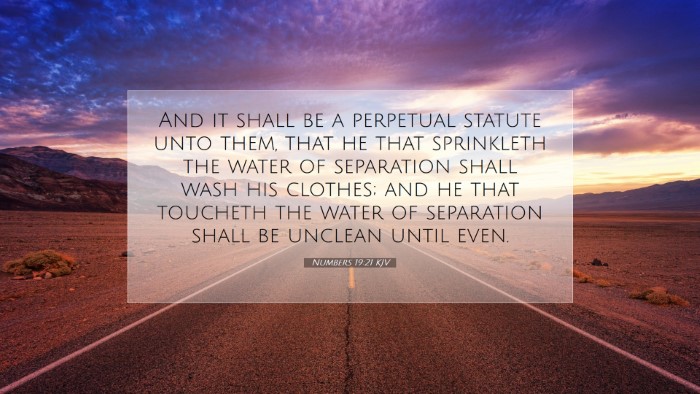Commentary on Numbers 19:21
Numbers 19:21 states: "And it shall be a perpetual statute unto them: that he that toucheth the water of separation shall be unclean until the even." This verse is part of the legislation concerning the ritual of purification related to the water of separation, which is made from the ashes of a red heifer. It emphasizes the seriousness of ritual cleanliness and the consequences of violating God’s commands regarding purification.
Exegesis and Theological Insights
This passage serves as a reminder of the sacredness of God's requirements concerning holiness. The concept of being 'unclean' can be understood both literally and metaphorically. It carries implications for one's fellowship with God and the community. Let's delve deeper into the insights from several public domain commentaries:
1. Matthew Henry's Commentary
Matthew Henry emphasizes the notion of lasting statutes instituted by God. He notes that the rituals concerning the water of separation highlight the importance of purity and the gravity of defilement:
- The Water of Separation: Refers to the cleansing agent derived from the ashes of the red heifer, symbolizing atonement. This water was crucial for restoring ceremonial purity to those who had come into contact with death or other sources of impurity.
- Uncleanness: Henry points out that those who touched this water became unclean, advising a deeper understanding of the term. He reminds us that what may seem trivial in rituals often carries significant spiritual implications.
- Perpetual Statute: The phrase 'perpetual statute' implies that God's laws are everlasting, aiming to instill a sense of awe, obedience, and respect within the community regarding divine commands.
2. Albert Barnes' Notes on the Bible
Albert Barnes provides a detailed explanation of the mechanics and meanings behind the purification laws:
- Symbolism of Water: Barnes discusses the symbolic nature of water in Scripture, often representing life and purification. He notes that the water here serves as a tangible means by which the Israelites might understand their spiritual state before God.
- Consequences of Touching the Water: Touching this water caused one to be unclean until evening, reflecting the seriousness of maintaining spiritual and physical purity and the concept of corporate holiness among the people.
- Ritual and its Importance: Barnes highlights that these rituals are not mere traditions; they serve as a divine provision for a people striving to live in relationship with a holy God.
3. Adam Clarke's Commentary
Adam Clarke provides a critical examination of the purpose and implications of this statute:
- Nature of Laws: Clarke notes that laws like this were intended to create a constant awareness of the holy nature of God. It prompts individuals to consider their status before God continually.
- Spiritual Lessons: He emphasizes the deeper spiritual lesson that the Lord is imparting through these symbols. Purity is paramount, and being unclean represents a barrier to communion with God.
- Evening as a Time of Reckoning: The stipulation that one remained unclean until evening signifies a period of reflection and potential restoration, offering an opportunity for reconciliation with God.
Practical Application
When considering the implications of Numbers 19:21 for contemporary faith communities, it is essential to recognize the enduring nature of God's standards for cleanliness and holiness.
- Personal Reflection: Just as the Israelites were called to keep themselves pure, believers today are reminded to engage in personal introspection regarding their spiritual lives. Regular confession and seeking purification through Christ's sacrifice can foster a more profound communion with God.
- Community Awareness: Understanding that sin can affect not only the individual but the community as a whole encourages believers to support one another in maintaining spiritual integrity.
- The Role of Rituals: While not all rituals prescribed in the Old Testament apply today, the underlying principles of holiness and respect for God’s commands remain relevant. The church may consider how to create practices that foster reverence and community accountability.
Conclusion
Numbers 19:21, though specific to its historical and cultural context, challenges modern readers to reflect on their personal purity and the collective holiness of the church. The insights gained from the commentaries of Matthew Henry, Albert Barnes, and Adam Clarke illuminate the weight of the Old Testament laws and their implications for understanding God's character, holiness, and design for human interactions.


